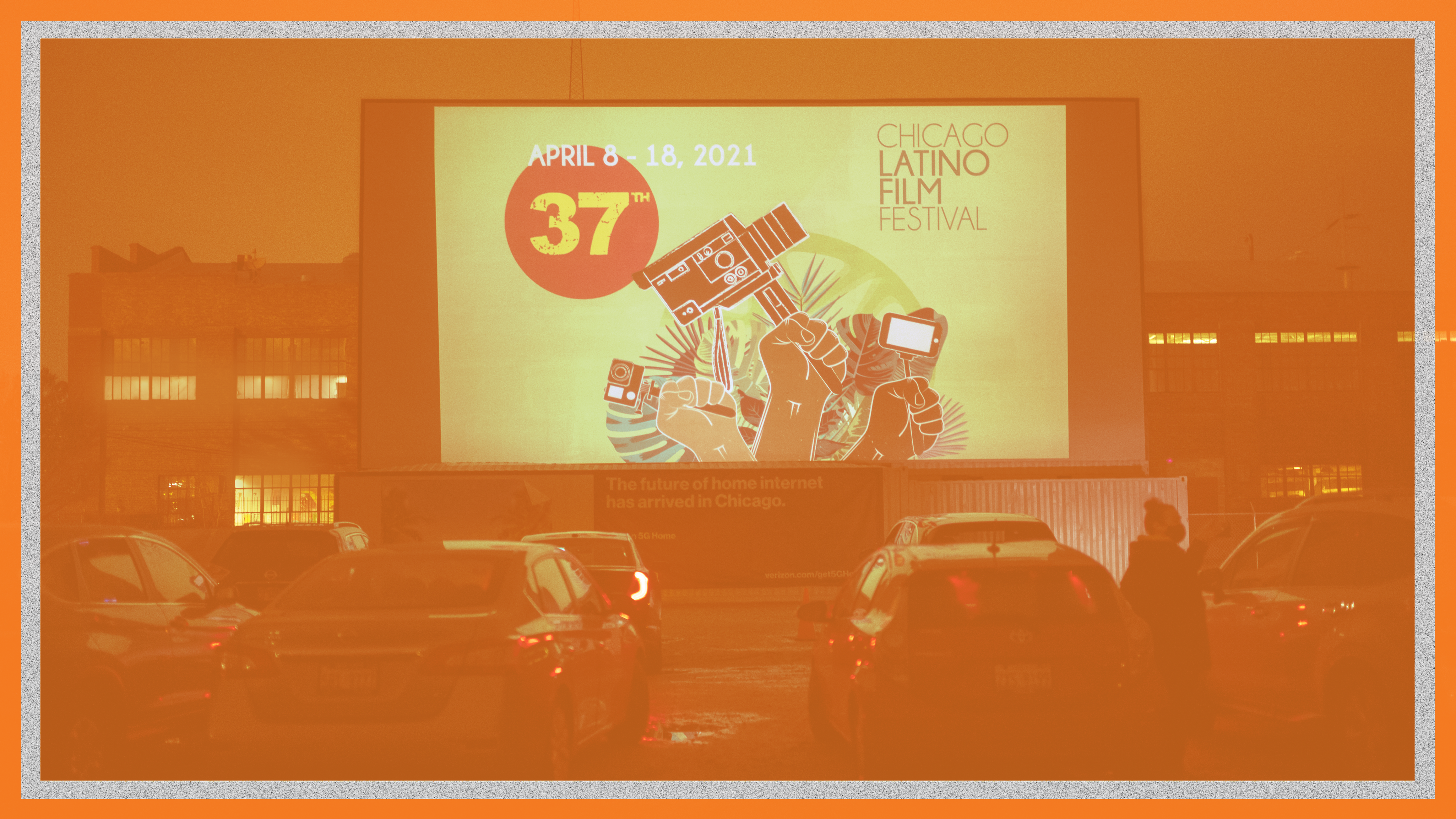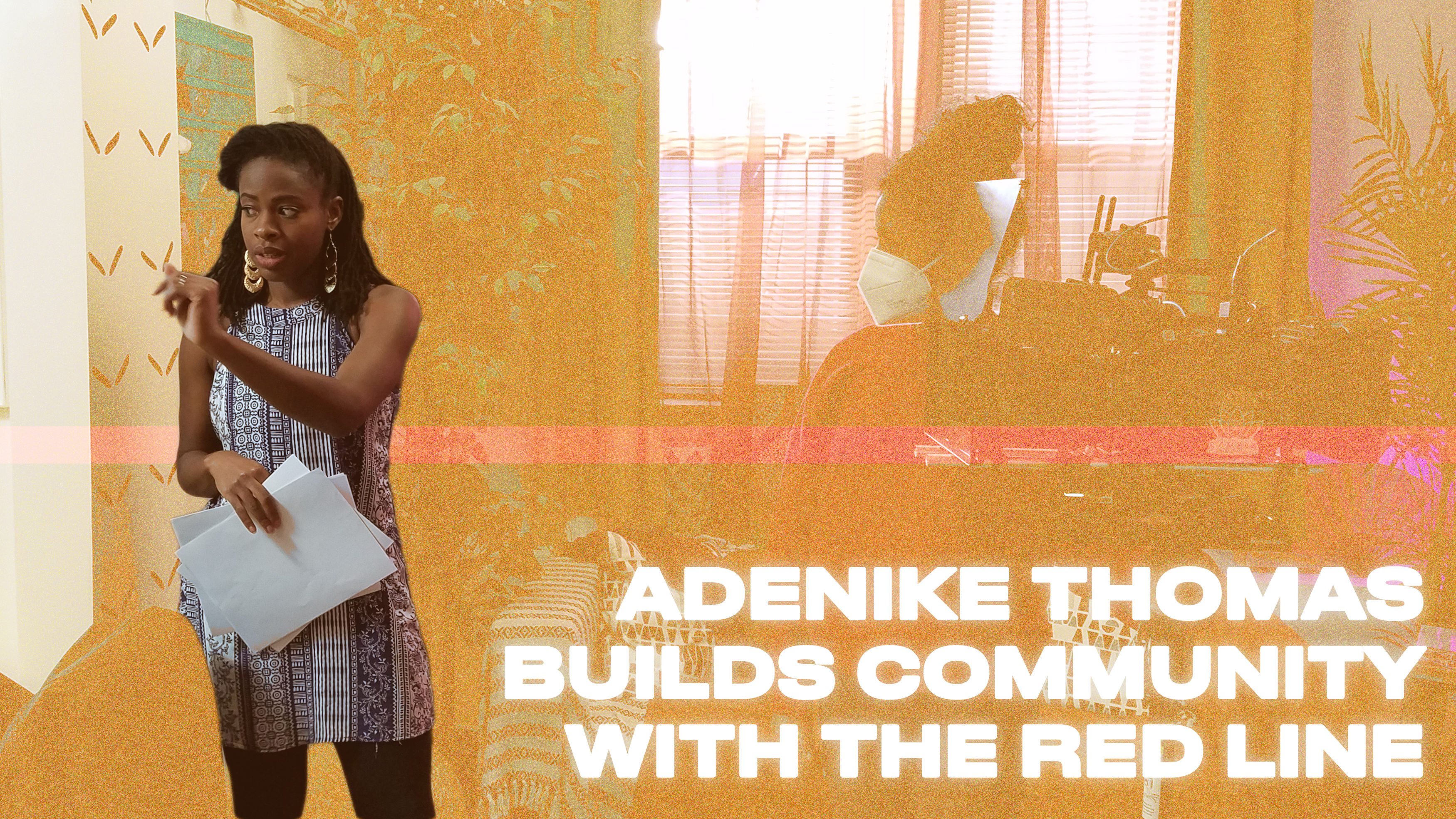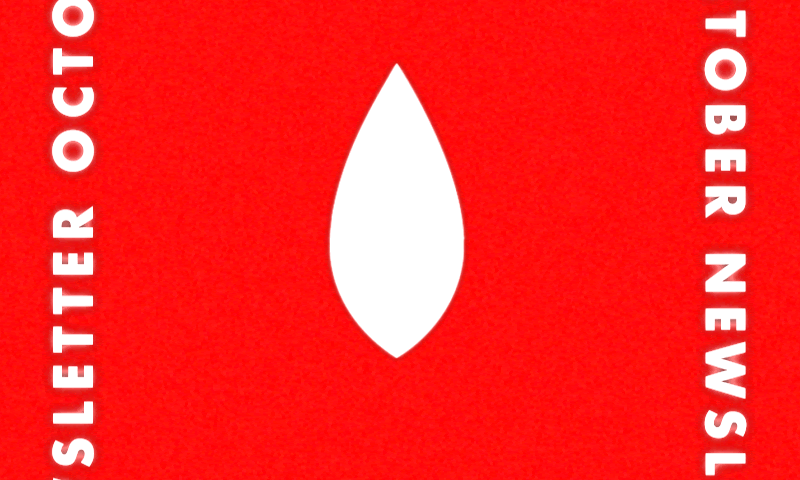In 1985, the Hispanic Film Festival (which would later, under the guidance of current Executive Director Pepe Vargas, change its name to “the Chicago Latino Film Festival” in 1987) was founded. The first fourteen films were projected on a concrete wall of the Charlie Chaplin Auditorium, located at Essanay Studios where, almost 70 years ago, Charlie Chaplin's now-beloved “Little Tramp” was born.
Similar to the Tramp, the festival began from humble beginnings, with a dream and the gumption to pull it off.

The Chicago Latino Film Festival | The Chicago Latino Film Festival
In the first year of the festival, Pepe Vargas organized a screening for 500 people. He wanted to create a space to showcase Latino art that would be accessible for all. To that end, he required the submitted works to have English subtitles.
“That was sort of the philosophy behind everything that we do,” Pepe says, “it’s about us (the Latino community), but it’s not only for us - it’s meant to be shared with everyone else.”
The original group of people who ran the festival for the first two seasons did not share Pepe’s vision. They had created the festival for a different reason: to recruit Latino students for St. Augustine College. When the recruitment objective failed, the festival venture was almost completely abandoned by some of the original founders. But, not Pepe.
“I had discovered that there was interest,” Pepe relates, “that we could put something together that will help us make a statement about who we are, what we are here for, and how can we fight back discrimination, segregation, and oppression.”
People responded to and believed in Pepe’s vision. The Chairman of Columbia College Chicago Film Department, a lover of foreign films, provided the festival overhead and the college became the festival’s fiscal agent. The festival also secured $10,000 from the city of Chicago, then celebrating its 150th anniversary in 1987. Through his tireless work, Pepe pulled together the resources to successfully screen a Mexican film about Frida Kahlo at the 3-Penny Cinema in Lincoln Hall.
“We had 1500 people come out to watch,” Pepe remembers, “and that was really the reaffirmation that we must be here. We must celebrate what is ours.”

The Reel Film Club, hosted by the International Latino Cultural Center of Chicago, pre-pandemic | The International Latino Cultural Center of Chicago
“I realized that this was not a one-man show and that I needed to create an organization,” Pepe recounts with a laugh, “so I created the Chicago Latino Cinema organization, now known as the International Latino Cultural Center of Chicago (ILCC).”
When the organization began, Pepe wanted to celebrate other forms of cultural expression - not just film. The Board of Directors were initially apprehensive about this new direction. Unfazed, Pepe organized an event to celebrate tango, complete with both a documentary and a live performance. Over five hundred people attended, reaffirming Pepe’s vision and steadily easing the Board of Directors’ worries.
Similar to how he advocated for a more comprehensive and inclusive platform for uplifting art, Pepe felt the same way about representing the different communities within his organization.
“The attended events have about 65% Latino and about 35% non-Latino people from all walks of life who are interested in the Latino culture,” Pepe notes, “the organization’s purpose is to create awareness, break barriers, and establish ourselves as a community that is multi-national and multi-language.”
“We celebrate our differences,” Pepe continues, “and that is where we find the great wealth of our cultures.”
In 1997, the ILCC brought the National Folkloric Ballet of Guatemala, a company of 45 dancers and musicians, to the Skyline Stage - a 1700 seat auditorium at Navy Pier.
Day of, the auditorium was packed with an enthusiastic audience.
“I was surprised,” Pepe smiles, “the one thing that moved me and really made me who I am now was witnessing people, mostly non-Latinos, crying and watching something that was authentic, from a country that was in a civil war.”

A Tango Show, Hosted by the International Latino Cultural Center of Chicago | The International Latino Cultural Center of Chicago
“Something that is really special to me is that the films that we bring to Chicago become opportunities for learning, teaching, and creating empathy,” Sophie Gordon relates.
Sophie started as the Programming Manager at the Latino Film Festival in May 2019. As a self-described initial “outsider” in the community, Sophie has grown to strongly appreciate the festival’s mission to dispel the notion that Ibero-America / Latin-America is a monolith.
Sophie and Pepe were planning for the 36th Chicago Latino Film Festival when the COVID-19 shut down began.
“We found ourselves with no real way to move forward. Nobody knew what to do,” Pepe remembers, “there was basically a month of waiting and hoping, but it didn't work.”
They did what they could. They began offering fifteen feature films that had been screened in previous festivals for free online. They ate the sunk cost of 300,000 copies of the 36th Festival’s program, which had cost close to $50,000 cash and countless hours of hard work. Furthermore, with the 36th festival having been postponed to September, several of the Official Selections had gone on to streaming platforms and online releases.
“And then, I mean, what? We’d cry and regret and a lot?” Pepe reflects, “Instead, we started being realistic about what was happening.”
Sophie began doing research on how to replicate the in-person festival experience during the shutdown.
“For audience members and for filmmakers, it's the experience of film festivals that people get excited about,” Sophie observes, “so, what do you do when you take away the in-person aspect of that experience?”
Sophie took this conflict on as an exciting opportunity to innovate. The Chicago Latino Film Festival was one of the first festivals to utilize a virtual platform, which was a trial-and-error process for both the programmers and the audience. The festival also started taking advantage of the virtual format through Q&As and interviews with filmmakers, who otherwise might not have been able to make it because of distance or time. They also began organizing drive-in screenings.
“That ended up being really successful,” Sophie shares, “those drive-ins were incredible because it felt a lot more authentic to the original experience of going to film festivals and seeing our audiences in person - even if we all had masks on.”

The 37th Chicago Latino Film Festival Drive-In | The Chicago Latino Film Festival
Deliberately and carefully, the ILCC is returning to some of the events they’d been hosting prior to the pandemic. In collaboration with the Chicago Park District, they started presenting films in the parks again this past summer. They’ve held a couple of virtual screenings, like the one they did for Colombian Independence Day. They planned some virtual Latino music series events for the fall.
“As we gear up towards this upcoming April festival, we're really thinking about how we can do things safely in the pandemic,” Sophie comments, “but also how the pandemic has really changed the film festival model forever. Maybe for the better.”
By offering films virtually, the Chicago Latino Film Festival experience has become more accessible than ever - a fact that Pepe is especially excited about.
“We took this as an opportunity to really grow bigger. We are aware of the leadership role that we play. People are looking at us. They trust us,” Pepe says.
“We have built this festival with our community, with the city, and with the filmmakers. We can’t fail them and ourselves. So, we have to create and be engaged and try new things out.”
As Pepe looks forward to the 40th anniversary of the Chicago Latino Film Festival, he remains committed to his original mission, recognizing the importance of real representation on-screen.
“I want to really stress the authenticity because it highlights something that is deficient in pure entertainment,” Pepe says.
“Unlike Hollywood, we are not motivated by profit. We're interested in something that is sacred and is precious about who we are - a reflection of the soul and the spirit of our people. Ultimately, we feel blessed with the opportunity to make a difference, which inspires us to excel as much as possible."

Pepe Vargas (left) and Sophie Gordon (right) | The International Latino Cultural Center of Chicago

Films in the Park | The International Latino Cultural Center of Chicago

The Reel Film Club, hosted by the International Latino Cultural Center of Chicago, pre-pandemic | The International Latino Cultural Center of Chicago
The Chicago Latino Film Festival (CLFF) is produced every April by the International Latino Cultural Center of Chicago (ILCC), a pan-Latino, nonprofit, multidisciplinary arts organization dedicated to developing, promoting, and increasing awareness of Latino culture among Latinos and other communities by presenting a wide variety of art forms. The Chicago Latino Film Festival began in 1985 with 14 films projected onto a concrete wall for 500 viewers and has now grown into the ILCC, which was originally founded as Chicago Latino Cinema.



